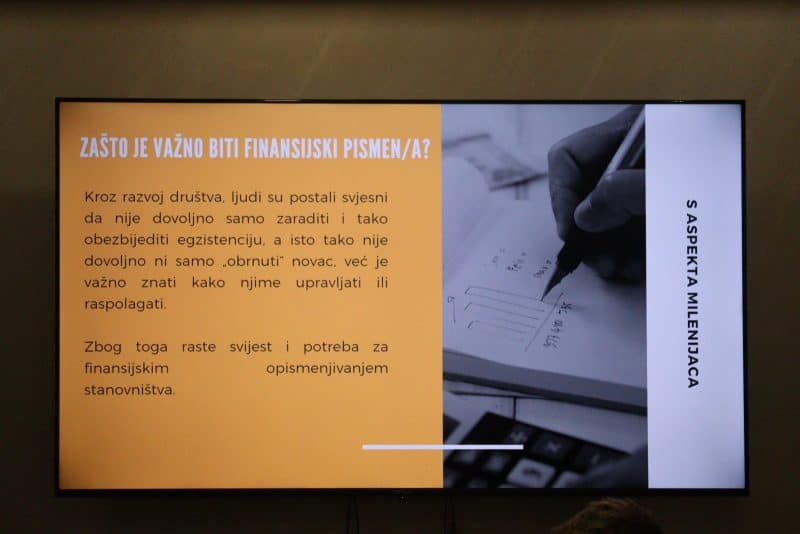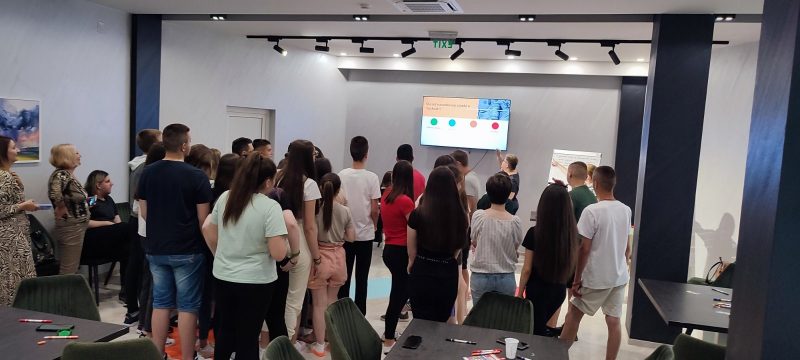July 25th, 2022
Dear all,
my name is Dijana Pejić. I am the founder and executive director of one of the oldest and very successful NGOs from Bosnia and Herzegovina, called Genesis Project. Also, I am a huge fan of the NGO Academy and I have participated in numerous Regional workshops and in the Social Innovation and the Management Programme. At the moment, thanks to the NGO Academy, I am attending Professional Master Social Innovation & Management. One of my elective exams, within the master’s program, was the Regional Programme workshop “Empowering others to become financially savvy” held by Nina von Gayl and Barbara Strachwitz from ERSTE Financial Life Park (FLiP).
My organization, in October last year, started to build up financial literacy competencies among children and youth (age 13 to 19 years) throughout Bosnia and Herzegovina, thanks to our partnership with UNICEF (more information). Working on that and wanting to do much more in the field of youth financial savviness and literacy, I was immediately drawn to the NGO Academy Regional program workshop “Empowering others to become financially savvy”. I wanted to learn more about interesting, creative, and playful ways of teaching children and youth how to become financially savvy. I wanted to learn how can I, using a similar approach as FLiP, educate children and youth throughout Bosnia and Herzegovina, how to become financially savvy?
Since I came back from the elective course, I conducted one workshop for adolescents aged 15 – 19 , in which I used many of the materials which FLiP generously shared with us in open-source format. My workshop was attended by 35 participants who showed a great amount of interest in the topic . I have explained to them that financial literacy, as an educational competence, was tested for the first time in the OECD / PISA 2012 study. The analysis of the data obtained by the questionnaire on previous experiences of young people in managing financial instruments (such as loans, stocks, bonds, etc.), as well as on situations in which financially sound decisions need to be made, and which followed the financial literacy test within the PISA study, showed that future generations will be far more and much earlier faced with making financial decisions. The same study showed that the number of 15-year-olds who have a bank account ranges from an almost unrealistic 90% in Slovenia and New Zealand to 37% in Croatia and 25% in Slovakia. The lowest percentage of students with a bank account is in Poland and amounts to 15%. In “my group”, less than 10% of youth had a bank account. The OECD / PISA 2012 study has recommended that the development of competencies for financial literacy should have its place in the education system, as is already the practice in many European education systems. Financial literacy education should be introduced as a cross-curriculum competence. It is necessary to conduct a series of campaigns that will raise awareness of what it means to be financially literate and why it is important, including the promotion of protection against financial risks. So, the need to teach youth about financial literacy and financial savviness is undoubtedly important. It is equally important to find interesting and attractive teaching methods adopted to the Bosnia and Herzegovina reality and context.
In my “financial literacy” workshop (which was based on the FLiP methodology), we started with the reality check, then moved to the areas of budgeting,before learning about basic “financial literacy” terminology.
Here are some photos from that workshop held last month:



